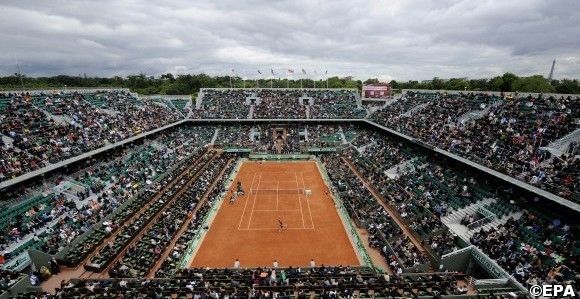Prize Money Pressure Now Shifts to French Open and Wimbledon
Player power has forced the Australian Open and the US Open to announce major increases in prize money. Now the focus will fall on the French Open and then Wimbledon to see if the two European Grand Slams step into line.
Both traditionally announce their financial intentions in Spring announcements scheduled for next month but Gilbert Ysern, the tournament director at Roland Garros has already given a strong indication.
Ysern has other matters on his mind, given the recent decision by the Paris city council or tribune to halt the 273 million euro extension plans to Roland Garros. But he is obviously up to speed with the United States Tennis Association announcement of a $US 4 million increase in total men’s and women’s prize money for this year’s event and a commitment to reach $50 million by 2017, effectively doubling the amount on offer last year.
And while he does not want to appear to be railroaded by pressure from the players, Ysern said: “We’re going to be below the US Open, but we’re on the same path.”
Ysern admitted that he agreed with the ATP Players’ Council assertion that the players who really merited a pay-raise were those lower ranked performers who habitually lose in the initial rounds of the 128-draw Grand Slam events but are still a requisite part of the tournament.
“I think quite sincerely that there’s a logic to paying the players more than we have until now,” Ysern said. “I am particularly convinced there’s a logic to reducing the gap between the first- week players and the second-week players and to raise the prize money for the first week. I think that really is logical, but after that, I think you have to be reasonable.”
The players believe they have a strong bargaining position with the French Federation de Tennis (FFT) after the introduction of an extra day’s play (the preceding Sunday) in 2006. The belief is that 15 days gate receipts and television revenue should reflect in a greater pay-out for those performers who bring in paying customers and attract viewers at home.
No ATP official has been more active in the lobbying process that board member Justin Gimelstob whose mandate is to act on behalf of the players. “I won’t say it was fun or cordial, and it was incredibly stressful and angst-ridden and there were even times it got personal,” he said. “But at the end of the day, we all put our egos aside and did what was best for the sport and the Slams and the tour.”
Gimelstob is aware Roland Garros has issues other than prize money the organizers are desperately trying to bring the venue’s facilities in line with its’ three Grand Slam cousins. He acknowledged: “The players view that as building on their sweat equity. The French Open is in tremendous jeopardy of falling behind after what the US Open and Australian Open have announced.
Brad Drewett, the ATP World Tour’s chief executive, who has worked on bravely despite announcing he has been diagnosed with suffering Motor Neurone or Lou Gehrig’s disease. “It’s been a long road to get where we are today,” said Drewett. “The progress that has been made over the last 12 months has been extremely significant.
“We’ve managed to get to a position where the Slams are not only listening to the ATP World Tour and the players’ concerns, but both sides are looking to be good partners in the long term. That change in the landscape cannot be underestimated, and my hope is this change is something that will ultimately benefit the sport as a whole for many years to come.”
©Daily Tennis News Wire
Topics: Australian Open tennis news, French Open tennis news, Prize Money, Sports, US Open tennis news, Wimbledon tennis news


10sBalls Top Stories
- Reasons Behind the Increase in Sex Shops
- Reasons Behind the Increase in Sex Shops
- Reasons Behind the Increase in Sex Shops
- Casibom: Yaşayan Casinolar ve Bahisler Lider Platform
- Sea Star Casino: Play Games Without Registering Online
- JETZT DEN SWEET BONANZA SLOT GRATIS DREHEN
- Азартные игры с Мостбет Казино – испытайте удачу
- Çevrimiçi en iyi yuvalar: Hizmetinizde Karavan Bet Casino
- Top No Deposit Free Spins Offer for Canadians – December 2024
- Abe Bet Casino: Ücretsiz dönüşlerle heyecan hissedin
- Ünlü slotlar çevrimiçi kumarhanelerde başarı bet giriş ücretli formatta
- BasariBet Casino Giriş – En Güzel Canlı Casino Oyunlarına Katılın
- Игра на деньги в казино 1вин казино: безопасность
- De parking de credits sans oublier les Diction Casino Archive sauf que Perception
- Играть в хитовые слоты в надежных клубах azino777





 Prize Money Pressure Now Shifts to French Open and Wimbledon
Prize Money Pressure Now Shifts to French Open and Wimbledon